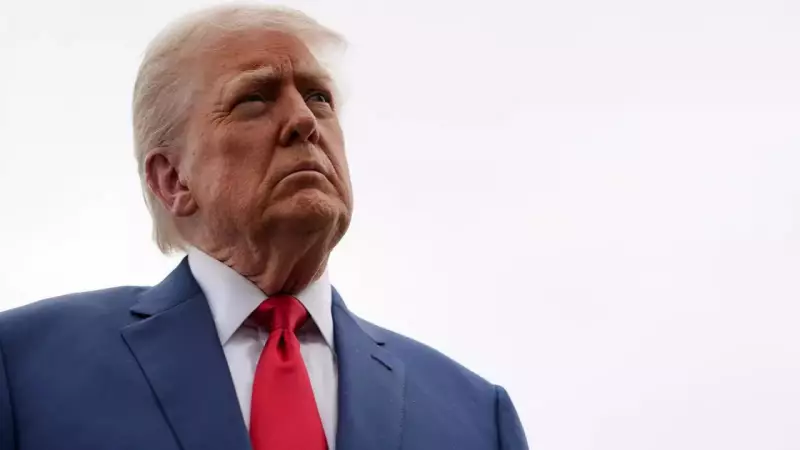
In an unusual move that breaks with diplomatic tradition, US President Donald Trump will personally swear in ambassador-designate to New Delhi Sergio Gor during a ceremony in the Oval Office on Monday. This rare presidential involvement comes at a time when bilateral relations between the United States and India face significant strain due to Trump's unpredictable foreign policy approach.
Breaking Protocol: Presidential Swearing-In
The swearing-in ceremony is scheduled for 3 p.m. EST (1:30 am IST) on Monday, following Trump's meeting with Syrian President Ahmed al-Sharaa, a former al Qaeda leader who was recently removed from the US terrorism watchlist. This sequence of events signals a major shift in American foreign policy in the region that has left traditional allies scrambling to adjust.
Presidential participation in ambassador swear-in ceremonies represents a significant departure from standard practice. Typically, the vice president administers the oath of office to newly confirmed ambassadors, either at the Eisenhower Executive Office Building or occasionally at the State Department. Trump's direct involvement is seen more as a reflection of Gor's personal closeness to the President rather than indicating heightened importance placed on US-India relations.
Strained Relations and Trade Tensions
The ceremony occurs against a backdrop of deteriorating US-India relations, with Trump repeatedly criticizing India through both policy decisions and public statements. Trade tariffs and the President's enthusiastic outreach to Pakistan and China have particularly concerned Indian officials and foreign policy experts.
Gor has already visited New Delhi on a preliminary trip as ambassador-designate and now returns to attempt stabilizing what many analysts describe as a diplomatic "trainwreck" caused by Trump's haphazard policies. Experts note the contradiction in Trump's approach: while he frequently emphasizes his personal relationship with Prime Minister Narendra Modi, his administration simultaneously implements punitive measures that damage bilateral ties.
Trade and foreign policy analysts Raymond Vickery and David Price have strongly criticized the President's transactional approach, arguing it has eroded trust that took decades to build following the difficulties of the 1970s.
Economic and Strategic Concerns
Former RBI governor Raghuram Rajan highlighted the contradictions in the relationship during a Chicago thinktank event last week. "Pakistan has a tariff of 19% and India has a 50% tariff. Where is the friendship between Modi and Trump that was extolled?" Rajan questioned, noting that the situation has become politically embarrassing for the Indian Prime Minister.
While both countries might reach a trade agreement soon, Rajan warned that the United States risks losing India's trust because "these things stay long in people's mind." This concern persists despite recent reinforcement of military cooperation, including defense establishment talks and the signing of a ten-year defense framework agreement by Defense Minister Rajnath Singh and US Defense Secretary Pete Hegseth.
Trump's foreign policy decisions have raised broader alarms among experts. His repeated references to a G-2 formulation regarding China, which analysts say amounts to surrender on trade issues, combined with his avoidance of the upcoming G-20 meeting in South Africa, has created widespread bewilderment. Additionally, the President appears to have deprioritized the Quad grouping of the US, India, Japan, and Australia, abandoning a leadership summit that India was scheduled to host in November.
In a commentary titled "Trump's incoherent foreign policy defies explanation," Council on Foreign Relations senior fellow Max Boot characterized the President's pronouncements as frequently unexpected and disconnected from reality. Boot suggested Trump's decisions often stem from whims, potentially driven by disinformation, with the possible purpose of "keeping the world off balance and keeping the spotlight on him."





